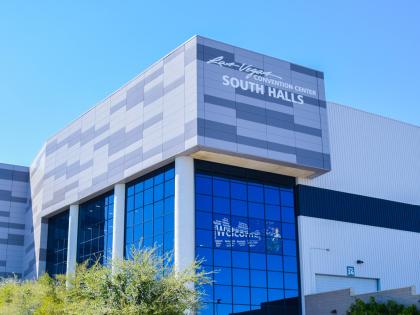Countdown to ICSC Las Vegas
Unveiling the biggest trends and opportunities within the retail sector
ICSC Las Vegas, one of the largest tradeshows for the retail industry, is on the horizon with an expected 30,000 attendees eager to network and reconnect face-to-face with industry leaders and peers. After a somewhat sluggish 2023, attendees will be looking to the conference to shed some light on the retail landscape and offer insights on new trends and opportunities within the sector. Consumer spending, retail vacancies and sale-leaseback activity will be among the most pressing topics discussed at the show. Here's an overview of each:
Consumer spending remains steady
Despite inflationary concerns, consumer spending has remained steady over the past year, as core retail sales, excluding gasoline, food service and auto vehicle purchases, increased by 3.3% at the end of 2023. As a result, demand for retail space has remained strong and the market is starting to see in uptick in new developer-built retail locations coming online. W. P. Carey has completed several deals that align with this trend – for example, the acquisition of 22 recently built and to-be-completed car wash facilities across the U.S., leased to Tidal Wave Auto Spa, a prominent car wash operator. With interest rates projected to decrease in late 2024, the market will likely continue to see a ramp up in new development over the coming months.
Retail vacancies at record lows
Strong demand for retail space has resulted in record-low vacancy rates, with total retail vacancy reaching 4.2% at the end of 2023. Low vacancy rates are a positive sign for investors like W. P. Carey as it provides greater confidence in long-term leases and the ability to re-lease vacant buildings if the need arises. However, it also means more competition for less space which is pushing retail rents significantly higher. This makes it more expensive for retailers looking to expand and acquire new space, which in turn increases operational costs.
Sale-leaseback activity picks up
With rents rising significantly, retailers – particularly those looking to grow their real estate footprints – will be seeking new ways to access capital. This will likely contribute to greater demand for sale-leasebacks, where a retailer sells its real estate to an investor (like W. P. Carey) for cash and simultaneously enters into a long-term lease. This is a valuable business decision for most retail companies because owning real estate can serve as a drag on their balance sheet. By unlocking the value of their real estate through a sale-leaseback, retailers can reinvest proceeds into their core competencies, leading to better overall returns and long-term growth.

Related Topics:
You May Also Like:
Retail Revitalization: Key Takeaways from ICSC Las Vegas
After a two-year hiatus, ICSC Las Vegas – one of the largest conventions for the retail industry – made its big comeback with over 22,000 attendees getting together to discuss the opportunities and...
Navigating a Rapidly Changing Retail Industry
Over 20,000 real estate investors, developers, property managers, retailers and brokers convened in Las Vegas last month for the annual ICSC convention. In the midst of a volatile market, attendees...